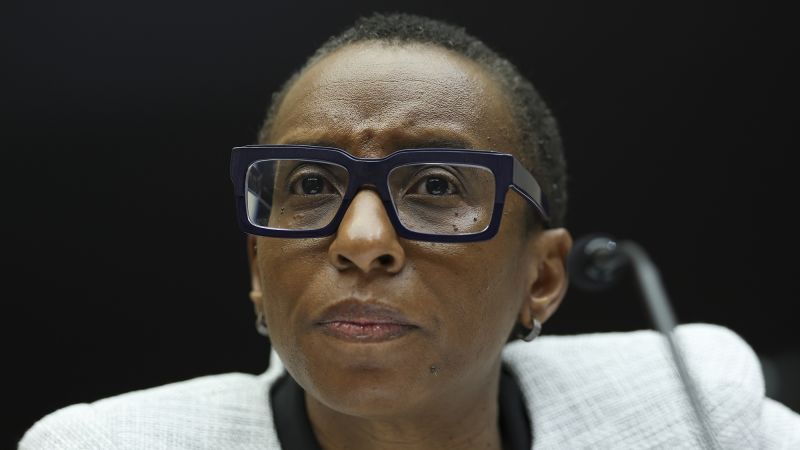The president of Harvard University apologized in an interview with the school’s student newspaper after facing widespread condemnation for her disastrous congressional testimony this week, in which she and other university presidents failed to explicitly say calls for genocide of Jewish people constituted bullying and harassment on campus.
“I am sorry,” Harvard University president Claudine Gay said to The Harvard Crimson on Thursday. “Words matter.”
The apology came just days after Gay, the president of the University of Pennsylvania and the president of MIT testified at a House committee hearing focused on antisemitism on campus, to widespread criticism that they have not done enough to ensure the safety of Jewish students and others at their respective schools.
Harvard, UPenn and MIT have all come under fire – along with other US academic institutions – over perceived inaction against antisemitism on their campuses, especially in the wake of the October 7 Hamas terror attack on Israel and the subsequent war.
At UPenn, for example, President Liz Magill has been under pressure to resign for weeks, as major donors and others say they have lost confidence in her ability to lose the school.
Harvard is also among 14 colleges under investigation by the Department of Education “for discrimination involving shared ancestry” since the October attacks.
During Tuesday’s House hearing, Gay, along with the UPenn and MIT presidents, did not explicitly say that calling for the genocide of Jews would necessarily violate their code of conduct on bullying or harassment. Instead, they explained it would depend on the circumstances and conduct.
Gay told the Harvard student paper that she regretted what she said.
“When words amplify distress and pain, I don’t know how you could feel anything but regret,” she said to The Crimson.
“I got caught up in what had become at that point, an extended, combative exchange about policies and procedures,” Gay told the newspaper. “What I should have had the presence of mind to do in that moment was return to my guiding truth, which is that calls for violence against our Jewish community — threats to our Jewish students — have no place at Harvard, and will never go unchallenged.”
“Substantively, I failed to convey what is my truth,” she added.
The Harvard president told the paper she’s heard about how much pain students are in over the past few months.
“To contemplate that something I said amplified that pain — that’s really difficult,” Gay said to The Crimson. “It makes me sad.”
Gay has faced plenty of calls to resign, most notably from Hedge fund billionaire Bill Ackman, a Harvard graduate who has been a vocal critic of how universities have addressed antisemitism on campus
“Throughout the hearing, the three behaved like hostile witnesses,” Ackman wrote in a post on X earlier this week, “exhibiting a profound disdain for the Congress with their smiles and smirks, and their outright refusal to answer basic questions with a yes or no answer.”
“They must all resign in disgrace,” Ackman said.
But the criticism from donors, politicians, alumni and business leaders has been reserved mostly for UPenn’s Magill, who appears most imminently at risk of losing her job. She faces a donor rebellion, including a threat from one donor to pull a $100 million gift. The Wharton board also said it wants Magill ousted.
Magill, like Gay, clarified her remarks Wednesday, a day after the controversial testimony. Magill said in a short video that she should have been more forceful in her condemnation of hate speech, particularly calls for genocide.
“I was not focused on – but I should have been – the irrefutable fact that a call for genocide of Jewish people is a call for some of the most terrible violence human beings can perpetrate. It’s evil. Plain, and simple,” Magill said in a video posted on X. “I want to be clear: A call for genocide of Jewish people … would be harassment or intimidation.”
Unlike Gay, however, Magill has not apologized for her testimony.
Read the full article here




